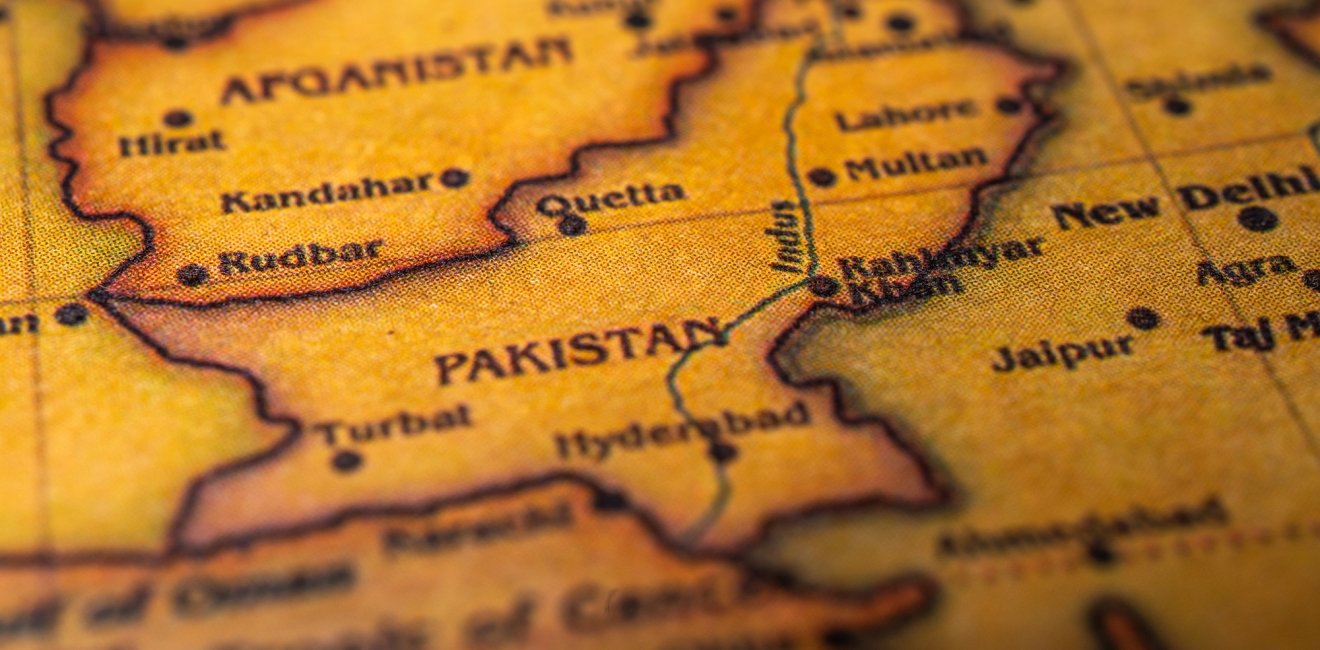
A blog of the Indo-Pacific Program
Inside Pakistan's biggest corridor of power, General Asim Munir, Pakistan's Chief of Army Staff, is grappling with an unsettling rise in terrorist attacks. These deadly assaults, often claimed by groups like the Tehrik-i-Taliban Pakistan (TTP) and more recently the Islamic State of Khorasan (ISK), have taken a toll on both military and civilian targets. Disturbingly, Pakistan's security apparatus has pointed fingers at Afghan nationals for some of the most recent attacks, deepening the country's complex predicament.
This intricate dilemma traces one of its roots back to a pivotal moment on September 12, 2001, when Pakistan's then-military dictator, Pervez Musharraf, convened a meeting with his generals and select civilian members of his cabinet. He acknowledged supporting the Taliban when the world was against them, and emphasized making decisions in Pakistan's best interest while minimizing damage to the Afghan Taliban. Reluctantly, Pakistan joined the international coalition against terrorism but covertly supported the Taliban through its prime intelligence agency, the Inter-Services Intelligence (ISI). This dual approach allowed Pakistan to secure over $32 billion in direct aid from the U.S. while clandestinely empowering the very forces it was fighting. President Musharaf and other generals in Pakistan, at the very least, kept their promises to the Taliban, while continuing to deceive Afghans and United States for over two decades.
The ISI trained the Taliban in various skills, including crafting explosive devices and orchestrating intricate suicide attacks. The arsenal included materials like ammonium nitrate and military-grade explosives. Tragically, these skills were turned against Afghans and international partners, causing significant harm to civilians. Nearly two decades of war saw a grim toll of over fifty thousand Afghan civilian lives lost, many by the very deadly tactics of the Taliban.
On December 10, 2015, during a bilateral meeting between Afghan President Ashraf Ghani and Pakistani Prime Minister Nawaz Sharif, tensions were evident. While Sharif emphasized a fraternal bond between the two countries, President Ghani suggested that the statement was not true and highlighted the destruction caused by the Taliban, underscoring explosives manufactured in Pakistan and the latter’s role in harming Afghanistan. The Afghan delegation sought guarantees from Pakistan to control explosive triggers and production materials. Unfortunately, assurances made by Pakistan that same day at a quadrilateral meeting involving Afghanistan, Pakistan, China, and the United States—represented by then deputy Secretary of State Antony J. Blinken—failed to materialize. These assurances encompassed actions such as compelling the Pakistani ulema to revoke a religious fatwa endorsing jihad promotion in Afghanistan, and investigating the distribution of explosive triggers. Pakistan continued its pattern, spanning administrations under both President Hamid Karzai and President Ghani, of making promises without upholding them.
Sharif was sweating, and it was evident that he was not the ultimate decision-maker in Pakistan.
On January 21, 2016, an uneasy Pakistani Prime Minister Sharif found himself in a trilateral meeting with Afghanistan and the United States at Davos. Amid pressure from then-Vice President Biden and then-Secretary of State Kerry on ending support to Taliban military operations and cooperating fatefully on a peaceful solution, Sharif was sweating, and it was evident that he was not the ultimate decision-maker in Pakistan. This disparity in power dynamics has been a recurring theme in Pakistan, with successive civilian leaders in Pakistan suffering international embarrassment for policies and actions that they did not formulate, even if in the end they accepted them reluctantly. And they had to bear the political brunt at home when these policies and actions backfired or failed, as a result of army leaders' manipulation and control of the policy process behind the scenes.
For a considerable period, Pakistan's military establishment propagated Islamic militancy regionally, supporting violent religious groups against neighbors such as Afghanistan and India.
Within its borders, it systematically suppressed civil society, progressive political actors, independent media, and journalists. The establishment backed parties like Pakistan Tehreek-e-Insaf (PTI), led by Imran Khan, to counter traditional political forces that finally recognized the necessity of challenging the dominance of army leaders. However, Khan and the military leadership had a falling out that began in 2021, and since then the establishment has taken a strong stance against PTI. That includes, this year, the imprisonment of Khan when he began to openly challenge the army's authority.
The late Pakistani human rights activist, Asma Jahangir, had cautioned many times that unless military leaders ceased their persistent undermining of civilian leadership and democratic forces, the nation would confront prolonged political instability, internal militancy, economic hardships, and strained foreign relations. Regrettably, these warnings have now transformed into reality: Pakistan's backing of militant groups, including the Taliban, has fueled domestic challenges and led to regional tensions, rather than fostering mutual growth. Even Pakistan's traditional regional allies exhibit hesitation in deepening their relations, underscoring the gravity of the situation.
Attacks in Pakistan have surged since the Taliban's victory in Afghanistan.
The skills, devices, and materials the ISI imparted to the Afghan Taliban—and the broader partnership between Pakistan and the Afghan Taliban—for so many years have led to tragic blowback for Pakistan. Attacks in Pakistan have surged since the Taliban's victory in Afghanistan. Most of them have been staged by TTP, a group that is ideologically and operationally aligned with the Taliban. The TTP are based in Afghanistan, and the Taliban have been unwilling to curb their presence there. Attacks rose by 28% in 2022 and a staggering 79% in the first six months of 2023. And yet, some Pakistani civilian politicians and military leaders appeared to celebrate the Taliban victory back in 2021.
Pakistan's Foreign Minister, Bilawal Bhutto Zardari, speaking in response to a recent terrorist attack in Peshawar, said that all options are available if Afghan authorities don't act to address the TTP threats. However, the words that matter most came from General Asim Munir, who expressed "serious concerns on the safe havens and liberty of actions available to TTP in Afghanistan."
Ironically, Pakistan is now facing what Afghan governments experienced for decades with the Taliban: When Afghanistan presented evidence of Taliban safe havens in Pakistan, Pakistani officials dismissed the information and rejected the notion that such safe havens existed on their soil.
The chief spokesperson of the Taliban, Zabihullah Mujahid, stated on August 8, 2023, that the group cannot be held responsible for another country's security failure, urging Pakistan to carefully manage its situation. This scenario mirrors Pakistan's past statements when it sheltered and trained Mujahid and his colleagues over the course of two decades. Mujahid's perspective is, however, accurate, considering that Pakistan itself bears responsibility for the situation, having orchestrated deception and destruction through proxies like the Taliban for a long time.
History can be instructive. Pakistan's military and intelligence must realize their approach toward Afghanistan and the region has backfired. Pakistan must end its double game and deception.
Over many years of using militant Islam as a strategy, a culture of Islamic conservatism took root within the army. During his rule, Musharraf recognized Islamist leanings within the army and took steps to remove senior officers with such inclinations. However, since he still considered support for Islamic militancy, like the Taliban, as essential to his regional approach, senior officers who sympathized with a strong Islamist agenda were not entirely removed.
It appears that the Biden administration recognizes Pakistan's duplicitous conduct, as do many countries in the region. To improve its relationship with Washington and beyond, Pakistan must undertake substantive reforms, demonstrating genuine commitment to change. The military's stranglehold on power—and its sponsorship of militant actors—must ease for a more transparent, accountable, and democratic governance framework.
Achieving true stability in Pakistan necessitates a strong civil society and political parties that are both effective and accountable.
To change course, military leaders should facilitate the upward mobility of officers who prioritize democratic development, economic growth, constitutional and civilian meaningful rule, regional stability, and connectivity as interests of Pakistan beyond the old tools of deception, Islamic militancy, regional dominance, and the narrow prism of strategic depth.
Achieving true stability in Pakistan necessitates a strong civil society and political parties that are both effective and accountable. General Munir can take advantage of a pivotal moment to bolster democratic forces, decrease surveillance, and mitigate suppression. The Pakistani public, long subjected to a cycle of politicians emerging from a limited set of families, must call for veteran political figures to endorse leaders who owe nothing to the army and are independent of military influence. These leaders should chart a course that extends beyond military dominance and self-centered populism, unlike figures such as Imran Khan. They should prioritize domestic political and economic stability, along with the development of Pakistan, instead of engaging in the army's regional destabilization endeavors.
To address its growing terrorism problem, Pakistan should invest in comprehensive and community-based counter-radicalization programs. Pakistan needs to swiftly cut both public and private funding to institutions like Darul Uloom Haqqania. The country must take immediate steps to eliminate numerous religious madrasas in Khyber Pakhtunkhwa and other provinces that teach militancy and supply recruits to violent groups in the region. They should be replaced with schools and vocational training centers.
Pakistan’s key intelligence agency, the ISI, collaborated for a long time with radicalized elements of the Ulema. Collaborations between civil society and moderate religious scholars and leaders promoting a moderate interpretation of Islam are crucial in fighting terrorism in Pakistan (though given the realities of Pakistan, at least initially these collaborations would likely require some buy-in from the army). Such a partnership can help challenge and counter extremist narratives. Additionally, transparency and accountability within Pakistan's security institutions are essential. This involves rigorous personnel vetting, regular human rights and rule of law training, and clear guidelines for force and resource usage, especially within ISI.
Establishing an independent oversight body comprising respected figures from civil society, journalism, and academia could ensure the integrity of an oversight mechanism. A successful oversight body would prevent the misuse of resources to support militancy, and curb the excessive use of force domestically in operations in areas of the northwest near Afghanistan. That latter step has been regularly demanded by Manzoor Pashteen, a human rights activist and leader of the Pashtun Tahafuz Movement (PTM). The PTM represents the rights of ethnic Pashtuns, many of whom have been civilian casualties of scorched-earth military operations in Pakistan’s northwest
Promoting a culture of accountability can help rebuild public trust, and prevent security forces from colluding with or ignoring extremist elements.
In conclusion, Pakistan stands at a crossroads, grappling with consequences from its decisions over the past few decades. Choices made now will shape its future trajectory, determining whether it breaks free from instability or becomes a responsible international member. The path ahead necessitates introspection, accountability, and a genuine commitment to both domestic and international peace and stability.
Nader Nadery is a senior fellow at the Wilson Center affiliated with the South Asia Institute,and a visiting fellow at the Hoover Institution at Stanford University.
The views expressed are the author's alone, and do not represent the views of the U.S. Government or the Wilson Center. Copyright 2020, Asia Program. All rights reserved.
Author

Associate fellow, Asser Institute; Visiting fellow, Hoover Institute, Stanford

Indo-Pacific Program
The Indo-Pacific Program promotes policy debate and intellectual discussions on US interests in the Asia-Pacific as well as political, economic, security, and social issues relating to the world’s most populous and economically dynamic region. Read more





